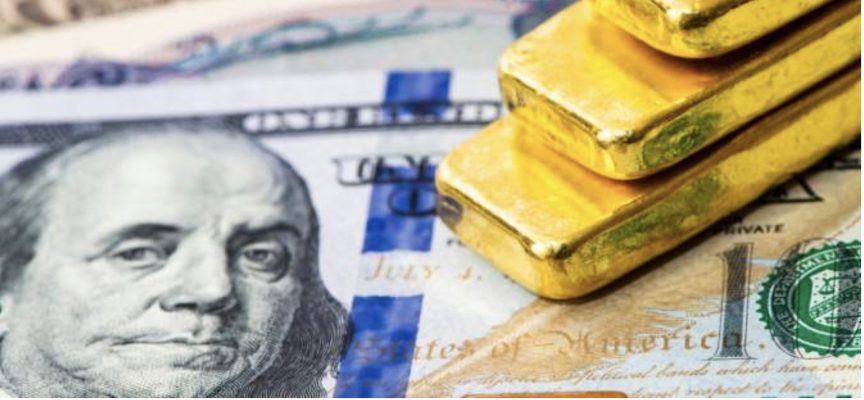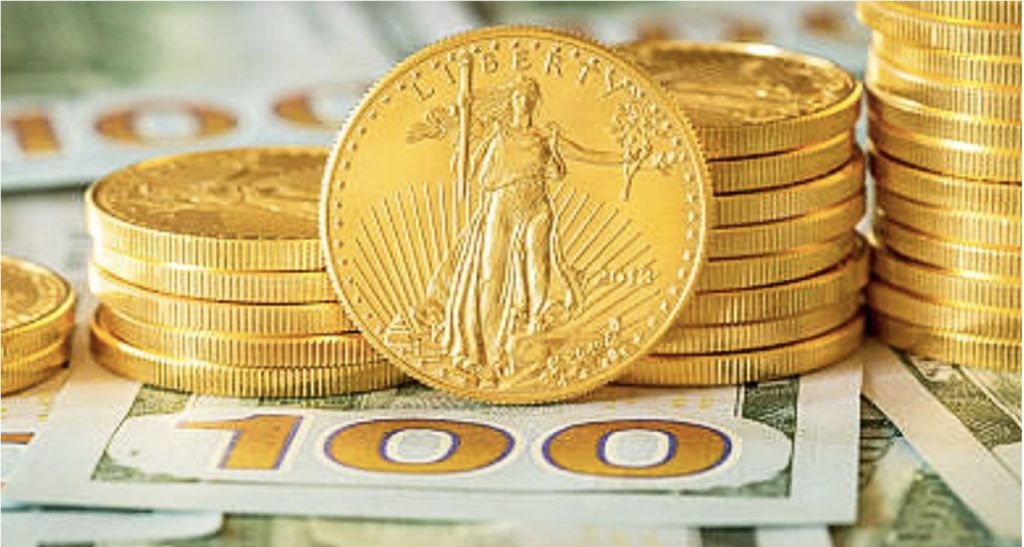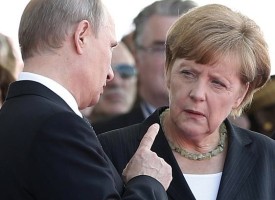This Chinese retaliation to a Trade War will send gold and the US dollar higher. Take a look…
December 5 (King World News) – Gerald Celente: At various times during his presidential campaign, Donald Trump said he would impose tariffs of 10, 25, 60, and 200 percent on Chinese imports into the U.S.
Whatever number he settles on, it is virtually certain that Trump will slap new import duties on some, if not all, Chinese imports.
The world has lived through this confrontation before.
In Trump’s first term, he laid tariffs on various Chinese products. Beijing struck back with levies on U.S. agricultural products, killing that market as China bought from Brazil and other countries instead.
Hundreds of U.S. small farms, especially in the Midwest, went bankrupt and Congress set up an emergency bailout for the industry, costing taxpayers $28 billion in extra expenses.
How will China retaliate this time?
China enters any trade conflict with problems of its own. Those include a stagnant economy, falling home prices, an aging population, and a range of tariffs already recently placed by its trade partners that limit its once-thriving export industry.
However, “China wields new powers as it confronts the prospect of another trade conflict with the U.S., expanding its retaliatory reach in recent years to include tools capable of wreaking havoc on global commerce and finance,” Reuters said.
One such tool is to accelerate its sale of U.S. treasury securities.
China has dumped a third of its U.S. bond holdings since 2017 in an attempt to diversify its portfolio. If it decides to flood the market with some portion of the $734 billion in U.S. debt it still owns, that would drive down bond prices and raise borrowing costs for the U.S.
Such a move also could scuttle the dollar’s value and disrupt global financial markets…
ALERT:
Look at which company has positioned itself to become the next K92 high-grade gold powerhouse! CLICK HERE OR ON THE IMAGE BELOW.
However, it also would rebound negatively on China itself, devaluing China’s remaining U.S. bonds and its foreign exchange reserves. A weaker dollar also would make U.S. exports cheaper abroad, giving China more competition as an exporter.
“Simple trade wars and reciprocal countermeasures cannot adequately address future China-US differences,” said Wang Wen, executive dean of Renmin University’s Chongyang Institute for Financial Studies.
China also could devalue its yuan.
That would lower the price of Chinese exports, which could boost sales to other countries. During the trade battle during Trump’s first term, China cut the yuan’s value against the dollar by 11.5 percent, which offset about two-thirds of the new U.S. tariffs, Morgan Stanley analysts calculated.
A majority of economists told a November Bloomberg poll that Beijing again may devalue its currency in response to Trump’s new trade levies. They estimated that the current exchange rate of 7.2 yuan to the buck could fall as low as 8. [King World News note: This will send the US Dollar Index higher along with the price of gold, an outcome that almost nobody is predicting.]
However, a weakened yuan would inflate China’s already record-level trade surplus, which could spark new tariffs or other restrictive actions by other trade partners. A more feeble yuan also would likely send foreign investors to seek higher returns elsewhere—very possibly in the U.S.
A key point of China’s leverage against the U.S. is its control of key minerals needed to make computer chips and other components in electronic devices.
In summer 2023, Beijing cut back exports of gallium and germanium, two such vital metals, in an attempt to pressure Washington to ease or lift some tariffs on Chinese goods. Later, it also restricted foreign shipments of graphite, followed by antimony, after the U.S. banned the sale of advanced computer chips to China.
China is also the main global source of rare earth elements, which also are essential in electronics production.
If China cuts off the supply of minerals crucial to electronics manufacture, that could largely paralyze the U.S. electronics industry, doing damage to economic sectors from retail to vehicles to national defense.
However, that probably would spur the U.S. to launch a crash program to develop non-Chinese sources of supply, depriving China of its market dominance and perhaps making the U.S. a future competitor, not a customer, in those essential materials.
China also can target specific companies and individuals.
After the first Trump trade war, China enacted laws allowing Beijing to block travel, business transactions, investments, or similar actions by invoking an “anti-foreign sanctions law” or naming people and companies to an “unreliable entity list.”
If China were to take action against Apple, Microsoft, or other U.S.-based companies, the firms could lose tens of billions of dollars’ worth of annual sales to the world’s second largest economy.
China already has said it will investigate the parent company of Tommy Hilfiger and Calvin Klein for refusing to buy cotton from the Chinese region of Xinjiang, where human rights activists say China is using the Muslim Uyghur population as slave labor in the industry.
That would expose Chinese companies operating in the U.S. to tit-for-tat bans and investigations.
Finally, China could strengthen its economic bonds with the U.S.’s traditional and important prospective trading partners.
A key Chinese tactic would be an “alliance formation in Eurasia along with commercial diplomacy to persuade American allies and partners that U.S. policy is reckless and harmful to peace and prosperity,” Matt Gertken, chief geopolitical strategist at BCA Research, wrote in a note.
China’s stronger alliance with Russia and its active wooing of Australia, Germany, and Japan show Beijing already is pursuing this strategy, he added.
TREND FORECAST:
Europe already counts China as its largest trade partner. China has declared a “fresh start” in its relations with Japan and has forged extensive new trade relations with India.
As to how much and how high Donald Trump will increase tariffs on China is a complete guessing game. As we have greatly detailed when he was President he increased tariffs on some products and sectors but backed off on other tariff increases.
All Hell Is About To Break Loose
To listen to this timely and powerful audio interview with Michael Oliver CLICK HERE OR ON THE IMAGE BELOW.
© 2024 by King World News®. All Rights Reserved. This material may not be published, broadcast, rewritten, or redistributed. However, linking directly to the articles is permitted and encouraged.









